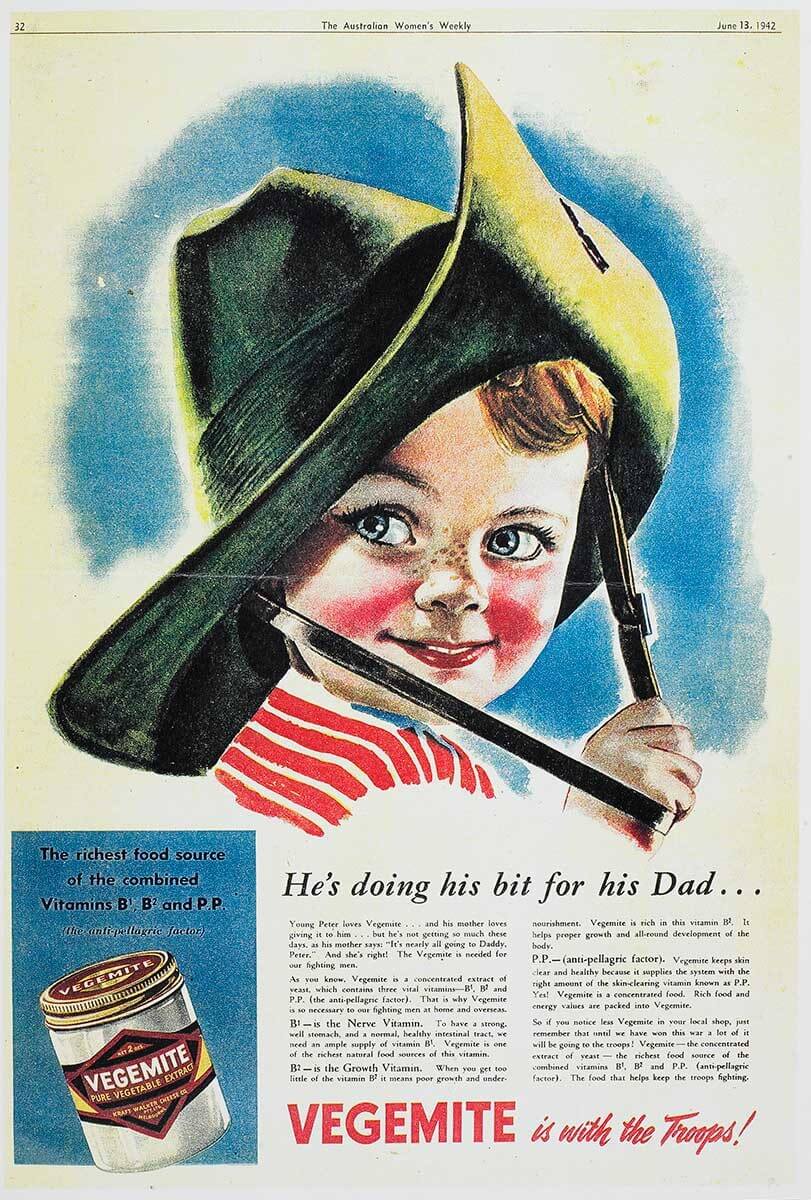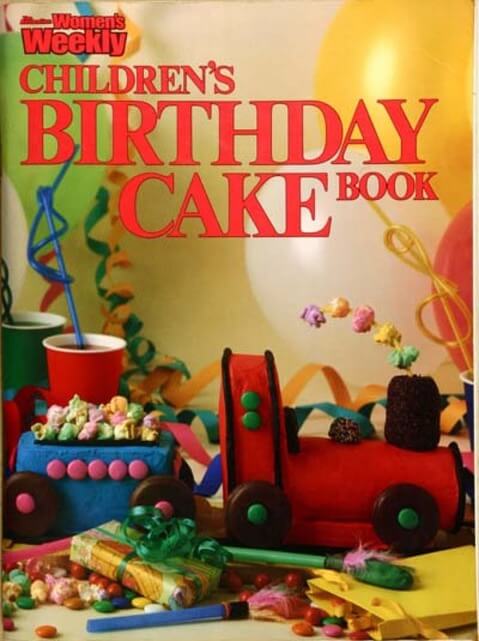AUSTRALIAN FOOD ICONS
from the MATERIAL HISTORIES SERIES RUN BY THE OLD TREASURY BUILDING IN MELBOURNE
You can view it in the Old Treasury Building website.
Happy little Vegemite soldiers: rationing, Vegemite and national identity in WWII
Vegemite might be an Australian cultural icon now, but the spread did not attract many fans when it was first launched in 1923. Though competitions in the 1930s increased brand recognition, it was not until Vegemite became a frontline rations staple in WWII that it began to be linked to Australian national identity. This paper explores how a yeast extract spread mixed with patriotism in wartime to create an enduring cultural legacy.
Speaker: Hannah Viney is a professionally accredited historian with a focus on Australian twentieth-century cultural, social, and political history. She recently completed a PhD in historical studies at Monash University on women’s anti-nuclear activism between 1945 and 1965.

Baking up an Australian icon: the Children’s Birthday Cake Book
The Australian Women’s Weekly Children’s Birthday Cake Book, first published in 1980, has been described as ‘the greatest book ever written in this country’. Appealing to children and mothers anxious to please them alike, the book contained precise, triple-tested recipes for over 100 different, highly decorative birthday cakes as well as instructions on how to pipe icing, make marshmallow flowers and colour coconut with food dye. This talk considers the Children’s Birthday Cake Book as an historical object, exploring what its pages can tell us about late twentieth century Australian tastes and changing gender roles. It also considers the cakes themselves, delicious yet ephemeral, as cultural artefacts which reflected children’s burgeoning identities and reinforced gendered expectations.

Speaker: Dr Lauren Samuelsson holds a PhD in history and is an Honorary Fellow at the University of Wollongong, Australia. Lauren’s research interests include cultural history, the history of food and drink, the history of popular culture and gender history. Her PhD thesis considered the influence of the Australian Women’s Weekly magazine and cookbooks on the development of Australian food culture from the 1930s to the 1980s. She has also worked on the social and cultural history of liquor legislation in mid-twentieth century New South Wales.
Leave a Reply
You must be logged in to post a comment.